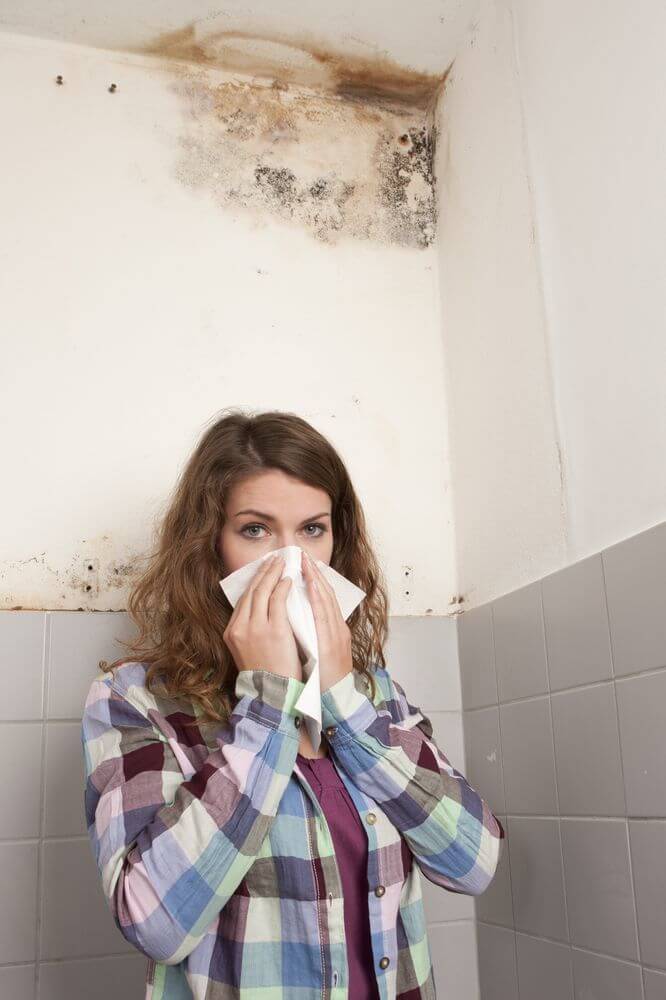
Why do I have mold in my home?
Mold is everywhere outdoors in the natural environment. It serves to breakdown organic matter such as trees and other vegetation in nature. Indoor mold growth is something that should be avoided however. Mold reproduces by tiny spores that are present in both indoor and outdoor air. Indoor mold only becomes a problem when it lands on a wet surface. In order for mold to grow it must have water above all. If indoor mold finds a perpetually wet surface, especially a cellulose based surface such as paper, wood or even paint it will begin to grow and thrive.
Can indoor mold harm me or my family?
Even if you are not allergic to mold, inhaling or touching it may produce allergic reactions such as sneezing, coughing, watery eyes, runny nose and skin irritations. These are only some of the potential health hazards associated with indoor mold. For more detailed information consult your health professional or your state or local health department.
Can I make my home mold-free?
We can never get rid of all mold spores in our homes. It floats in the air we breathe. It will always be present in small amounts. As long as there is no moisture source it does not pose a threat. If you find mold growing in your home, than you have a moisture problem which is promoting its growth. Cleaning up the mold without fixing the source of the moisture will almost certainly result in the mold returning. Remember, mold over a period of time will destroy most things it grows on.
I only have a small amount of indoor mold, do I need a professional?
Any homeowner can and should clean up small quantities of indoor mold (3’x3’ area) using ordinary household cleaning products. Be careful to protect your eyes, wear rubber gloves and use a paper mask if available. When mold contamination is larger than a ten square foot area, it may be time to call in a professional. For more information on mold remediation consult the U.S. Environmental Protection Agency (EPA) guide: Mold Remediation in Schools and Commercial Buildings.
Helpful Suggestions:
- If you decide to hire a professional to perform mold remediation, be sure to ask for their CMR (Certified Mold Remediator) number and check their references. At the end of the job the person hired should provide you with a Certificate of Completion describing the areas treated and a post evaluation attesting to the effectiveness of the treatment. Remember, the source of the moisture that caused the mold in the first place MUST be addressed or the mold will return.
- If you suspect that mold growth has entered your ductwork, consider having your ducts cleaned by a professional certified to perform this task.
- If the water that caused the mold came from sewage or is otherwise contaminated, consider hiring a professional who is certified to perform this type of cleanup.
- If someone in your home has health issues, they may be more susceptible to the effects of mold contamination. Consider speaking with your health professional before initiating a cleanup.
In future columns about mold contamination we will be discussing tips and techniques for performing a mold cleanup.
Energy Geeks is a Home Performance Contractor whose primary focus is sustainability and efficiency as it pertains to energy use, water consumption, indoor air quality, land use and building design. Call us at 401-766-1540 or visit our website at www.energygeeksinc.com.

